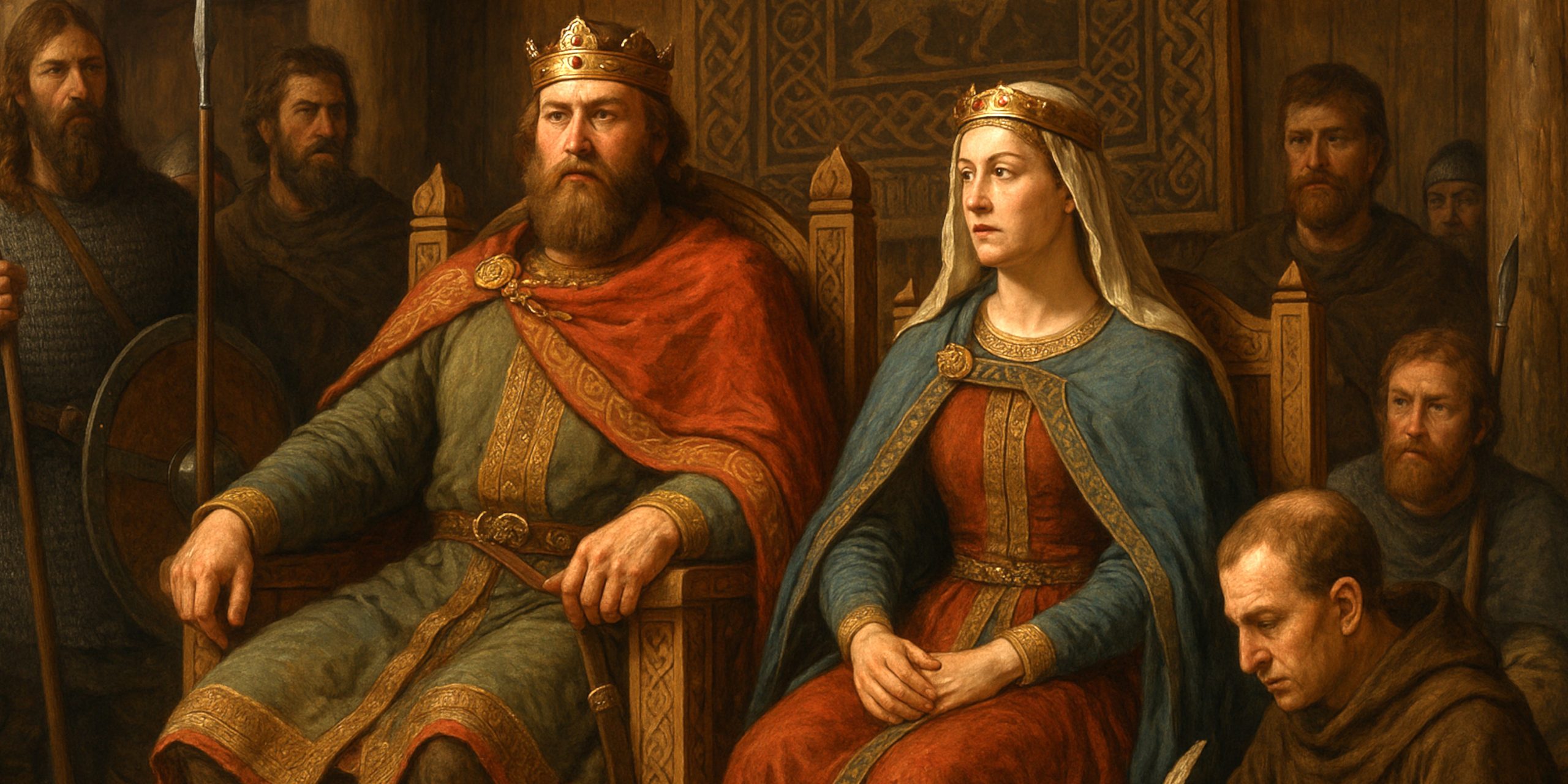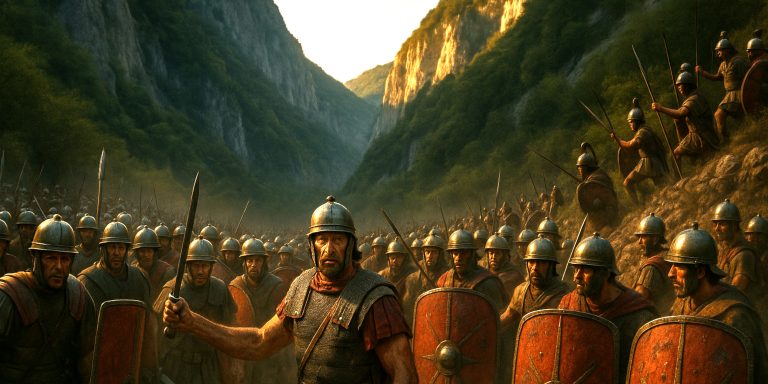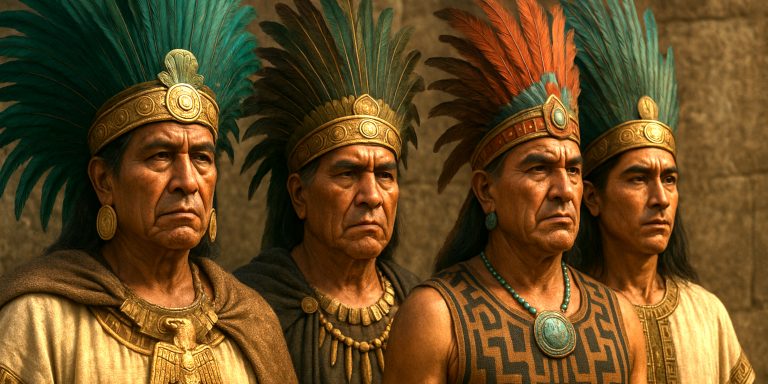
The Anglo-Saxons loom large in British history, half in the light of record, half in the shadow of myth. Between the fall of Rome and the Norman Conquest, they shaped England’s language, law, and landscape. Yet many of the things people believe about them are pure invention, forged by later chroniclers or Victorian imaginations. Let’s separate the cold historical iron from the rust of legend.
7 Facts About the Anglo-Saxons
1. They Were Not a Single People
The term “Anglo-Saxon” was a convenient shorthand, not a single nation. The Angles, Saxons, Jutes, and Frisians were distinct tribes who migrated from different regions of northern Europe. Over time, they merged politically and linguistically into what became the English.
2. They Created England’s First Kingdoms
From small tribal territories rose the Heptarchy: seven main kingdoms including Wessex, Mercia, and Northumbria. These realms constantly fought, traded, and married among themselves until Wessex, under Alfred and his heirs, forged the idea of a unified “Englaland.”
3. They Were Deeply Literate (Eventually)
Early Anglo-Saxon society prized oral tradition, but literacy bloomed under Christianity. Monasteries became centres of learning, copying Latin texts and recording vernacular works like Beowulf. The scholar Bede, writing in the 8th century, was Europe’s intellectual beacon.
4. They Loved Jewellery and Ornament
Despite their reputation for simplicity, Anglo-Saxon craftsmanship was dazzling. The Sutton Hoo burial proved they mastered fine goldwork, cloisonné garnet inlay, and weaponry that doubled as art. They may have lived in timber halls, but they dressed in splendour.
5. Their Laws Shaped Modern England
Early codes like those of King Æthelberht of Kent introduced compensation, or wergild, for crimes. These formed the foundation for English common law. Even local assemblies (moots) evolved into later parish and county systems.
6. Women Could Hold Power
While the period was patriarchal, figures like Æthelflæd of Mercia show that women could rule effectively. Widows could inherit land, nuns could run estates, and queens occasionally advised in councils. It was not equality, but it was agency.
7. They Were Not Wiped Out by the Normans
The Norman Conquest changed the ruling class, but Anglo-Saxon blood, culture, and language endured. Modern English evolved from their tongue, and many place names, laws, and social customs trace directly back to their world.
7 Myths About the Anglo-Saxons
1. They Invaded Overnight
The idea of an “Anglo-Saxon invasion” is misleading. Archaeology shows a gradual migration over generations, not a sudden military takeover. Some Britons adopted Anglo-Saxon culture voluntarily for prestige or security.
2. They Destroyed Roman Civilization
It’s fashionable to imagine them torching villas and smashing baths, but Roman society was already crumbling. Anglo-Saxons filled a vacuum, building new settlements and political systems on land long abandoned.
3. They Were Uncivilised Barbarians
Their language, art, and law prove otherwise. They built complex social hierarchies, prized kinship and loyalty, and had a rich oral tradition. Their monasteries produced fine manuscripts while much of Europe still reeled from upheaval.
4. They Never Travelled Far
They were not isolated villagers. Anglo-Saxon traders reached the Frankish kingdoms, Scandinavia, and even the Mediterranean. English pilgrims were recorded in Rome, and coins from Wessex have been found in Byzantium.
5. They All Hated the Vikings
Relations with the Norse were not all blood and axes. Many Viking settlers married into local families and adopted Christianity. Towns like York (Jorvik) flourished under mixed Anglo-Scandinavian rule.
6. They Spoke Old English Just Like Shakespeare
Old English and Shakespeare’s Early Modern English are worlds apart. If you tried reciting Beowulf in its original language at the Globe Theatre, you’d be met with polite confusion. The tongue evolved dramatically after the Norman influence.
7. They Disappeared Into History
Far from it. Their legacy lives in England’s legal systems, local governance, literature, and language. Even today, phrases like “folk,” “home,” and “hearth” echo with their voice. The Anglo-Saxons never vanished, they simply changed shape.
The SevenSwords Takeaway
The Anglo-Saxons were neither angels nor barbarians, but something far more interesting: builders, settlers, poets, and pragmatists. They lived through chaos and left behind the bones of a nation. The myths about them often reveal more about the storytellers than about the people themselves.
As one might say in their tongue, Sōþ hit is þæt sē þe lærde hīe næs, forlēas hine selfne “True it is that he who taught them not, lost himself.”



